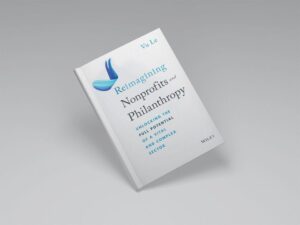
October 17, 2018; Dayton Daily News and MyDaytonDailyNews.com
Former board member and treasurer Renee K. Nichols has been charged with aggravated theft and tampering with records in connection with the alleged embezzlement of more than $180,000 from the Springboro Clearcreek Baseball Association. Nichols is alleged to have engaged in more than 1,000 “inappropriate expenditures,” which she attempted to cover up with doctored bank records and other deceptive practices.
Investigators say Nichols used the money, which came primarily from children’s membership fees, for a Disney vacation, paying her personal credit card bill, and other expenditures.
“The idea that funds that should have been used for things like replacing aging helmets to prevent concussions, instead were used as someone’s own personal slush fund, it’s infuriating,” said Warren County Prosecutor David Fornshell.
Nicholls, a certified public accountant (CPA), served as treasurer from 2011 to 2017. In 2017, the addition of a new board member (also a CPA) and complaints from vendors about missing payments led the board to alert authorities and launch an investigation.
David Meester, a board member speaking for the association, says the board is committed to making things right for the community, and those directly impacted by the loss of the funds:
We are very upset…we want to continue this relationship with the community. The current board we have now is committed. We’ve been working with the state, working with the police to reconcile this. We’re here for the community and the kids. We’re looking to be stronger for the kids.
While the details of the case are limited, we can draw some obvious lessons applicable to all nonprofits and point to helpful resources that are available to protect against such disappointing outcomes that can damage or even destroy the most well-intentioned organizations.
The Ohio Attorney General’s Office, concerned about this incident and a similar case in the same jurisdiction, has been very active in generating awareness about the issues and is sharing a report called “Avoiding Theft In Your Nonprofit.” Importantly—and critical for any nonprofit that wants to prevent financial fraud (that should be everyone)—the report makes it clear that perpetrators are often those who might be least expected of criminal activity.
Sign up for our free newsletters
Subscribe to NPQ's newsletters to have our top stories delivered directly to your inbox.
By signing up, you agree to our privacy policy and terms of use, and to receive messages from NPQ and our partners.
“Theft happens in large and small organizations, and often it involves individuals who are widely respected and valued within the organization,” the report says. “Often there is no rational explanation, other than perhaps greed.”
Given there often isn’t a way to “see it coming” (while proper background checks including references is essential, most perpetrators aren’t going to be screened out that way) we certainly know a lot about what enables it. While there may be different perspectives on how different prevention methods, tools, and practices, rank in importance, there is widespread agreement that limited financial literacy within leadership structures is a key vulnerability.
This is borne out by the current woes of the Springboro Clearcreek Baseball Association where just one individual (the alleged fraudster) was trusted as the “finance person.” They were fortunate that a new board member brought financial knowledge that helped expose the problem, but it’s not a realistic goal (or good for boards) to have a table loaded with nothing but CPAs. So, what to do?
Every board member must be engaged in the organization’s financial processes, and be confident and comfortable to review financial information, and especially to ask questions.
The baseball association has already taken a key step that is recommended for all organizations.
“The grand jury’s recent indictment represents a year’s worth of close collaboration with the City of Springboro, Warren County, and the State of Ohio,” says a current posting on their website. “During that time the league has put an entirely new executive board in place and formed a Finance & Audit committee that is solely focused on financial oversight and accountability.”
While the details of a “finance committee” may vary in name, composition, and complexity (this is influenced by factors such as budget size, staffing levels, and governance models) it is a critical step in fraud prevention—it means many people (not just one person) providing frequent financial oversight, having access to financial records, and helping the board as a whole understand the organization’s finances, as well as create an environment for improved financial literacy and transparency.
The NPQ website features excellent articles that link to various resources, from research papers to webinars, that will help any nonprofit to take positive steps for improved financial literacy and oversight.
- Maximizing Nonprofit Internal Controls: An Essential Guide for Even the Most Pure (This is a Hilda Polanco webinar with downloadable slides that can be used at your own board meeting.)
- Creating High-Functioning Nonprofits: Who Should Have What Financial Information? (This webinar hosted by Hilda Polanco and moderated by Ruth McCambridge is not directly focused on fraud prevention, but is very relevant to financial literacy.)
- Absent the Audit: How Small Nonprofits Can Demonstrate Accountability Without One (There are principles here that apply to all; for example, “the primary ways that organizations prevent fraud, regardless of budget size, are in segregating financial duties and creating a culture of financial ethics and transparency.”)
- How to Steal from a Nonprofit: Who Does It and How to Prevent It (This is loaded with interesting and provocative facts, like this one: the typical nonprofit fraud is committed by a female with no criminal record…she earned less than $50,000 a year and had worked for the nonprofit for at least three years.)
- Beyond Financial Oversight: Expanding the Board’s Role in the Pursuit of Sustainability (This is from NPQ’s spring 2011 print edition, “Governing amid the Tremors.”)
- How We Survived An Embezzlement and Rape Crisis Center Survives after Fraud Wreaks Havoc: A Nonprofit Cautionary Tale (I hope it doesn’t happen, but just in case your prevention efforts fail.)
For those who want to go even deeper into books and studies:
- An Investigation of Fraud in Nonprofit Organizations: Occurrences and Deterrents (This uses data provided by Certified Fraud Examiners to report on the types of fraud they identified in nonprofit organizations and the characteristics of both the victims and the perpetrators of the fraudulent activities.)
- Financial Responsibilities of Nonprofit Boards, Third Edition (At just over 100 pages, this BoardSource manual is accessible for all and can be used to frame discussions about identifying weaknesses and adopting new processes.)
— Keenan Wellar












